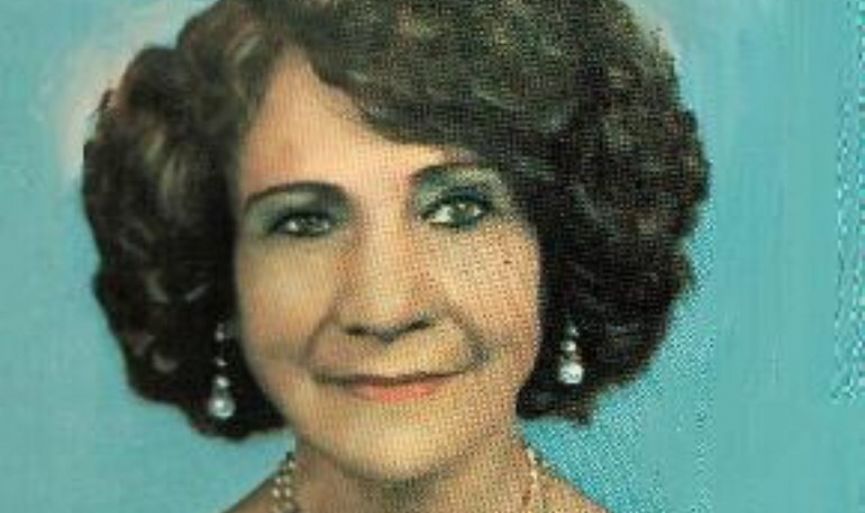The diva of Rebetiko music: Who is Roza Eskenazi?
Rebetiko is a type of music that reflects the love, jealousy, sadness, anger, drug and alcohol habits, in and out of prison, and forbidden love of the poorest, most neglected Greeks, and those who were at odds with social norms, from the late 19th century until about the 1950s.

It is the music of taverns, pavilions, Kafe Aman's (they take their name from the "Aman Aman" chorus in the songs), shacks, and marijuana lodges.
Once upon a time, Bessie Smith was the empress of the Blues in America, and Roza Eskenazi was the queen of Rebetiko in Greece.
I'm talking about the blues because many music authorities have described Rebetiko as the Blues of Greece. While no one else had a deal with international record companies, the only Greek singer who had a deal with American record companies was Roza Eskenazi.
So, who was Roza Eskenazi?
Roza Eskenazi was born in Istanbul under the name Sara Eskenazi. She belonged to a Sephardic family. She had an older brother, a younger brother, and a sister. In her interviews, She said that she was born in 1910, but no one believed her. She was probably trying to make herself look ten or even fifteen years younger.
When she was a child, her family moved to Thessaloniki. She never went to school, but she learned to read and write from a neighbor lady. While she only knew Turkish at first, she soon learned Greek. She decided to become a singer at a young age. She went on stage and was beaten by her mother. Considering the period she was in, it is not difficult to understand that a young girl being a "singer" was considered the same as "falling into a bad path" and that her family could not accept her decision.
Roza Eskenazi (mid-1890s – 2 December 1980) was a Jewish-Greek dancer and singer of rebetiko, Greek folk music, Kanto and Turkish folk music born in Istanbul, whose recording and stage career extended from the late 1920s into the 1970s.
She changed her name to Roza, joined an Armenian cabaret group, and went to Piraeus in the 1910s. She sang and danced in Turkish, Greek, Armenian, and Ladino songs in theatres. Again in the 1910s, she fell in love with a rich Greek young man from Cappadocia, and although the man's family did not want Roza, they ran away and got married. Unfortunately, her husband died early, leaving Roza with a child. She left the child to her husband's family and returned to the stage. It wouldn't be until 1935 that her son found Roza in Athens and they got together again. They would run a nightclub together in the 1940s and would never be separated again.
Discovered by Panagiotis Toundas
Rosa was discovered by the famous Greek composer Panagiotis Toundas in the 1920s. She expanded her repertoire from Turkish classical music works to all kinds of Italian music, from Turkish folk music to Greek folk songs. Toundas introduced her to Vassilis Toumbakaris of Columbia Records. This was the beginning of Roza's recording career, which continued almost uninterrupted until the 1960s. By the mid-1930s, she had recorded more than 300 songs for Columbia Records and became one of their most popular stars.
Some of the recorded music was folk songs from Greece and Izmir. However, Roza's biggest contribution to the local music scene was her Rebetiko recordings, especially those of the Izmir school. Soon her fame spread far beyond Greece and the Greek diaspora. She gave concerts many times in Egypt, Albania, Serbia, and other Balkan countries, and even in the United States; She became famous there too. She added Arabic, Yiddish, and various Balkan languages to the languages she sang in. Even though she had no musical education, she composed compositions and wrote lyrics.
She remarried in the 1930s. She had a second son. Unfortunately, her husband was a heavy drinker and died early because of alcohol. But in the future, she would have three grandchildren from this son.
She hid Greek resistance fighters and Jews
In the 1940s, Italians and Germans occupied Greece. Roza did not stop fighting. On the one hand, she ran a nightclub with her son. On the other hand, she began hiding Greek resistance fighters and Athens Jews both in her home and in her nightclub, Krystal. She managed to kidnap some Jews from both Athens and Thessalonica. She trusted her lover, a high-ranking German officer, and her fake baptismal papers, but her deception was revealed and she spent three months in prison. She barely escaped being sent to a concentration camp, thanks to the efforts of her German officer lover and son, and had to spend the rest of the war in hiding.
Throughout her long career, Roza had developed good relationships not only with Vassilis Toumbakaris of Columbia Records but also with Minos Matsas, who founded Odeon/Parlophone. This also allowed her to support the careers of other famous singers such as Marika Ninou and Stella Haskil. Roza introduced them to the Allilovoithia Musicians Union and soon they started recording with Vassilis Tsitsanis…
Rebetiko, which gradually began to be forgotten after the 1950s, was remembered again in the 1970s. Roza's records began to circulate from hand to hand. At a late age, Roza appeared in various TV Shows. She remained on stage until her last show in 1977.
Roza Eskenazi left behind more than 500 records
She had a soft, sweet, soprano voice. When interpreting songs, she felt the meaning of the words and made the listeners feel them, too. In this respect, she was compared to Edith Piaf and Billie Holiday.
